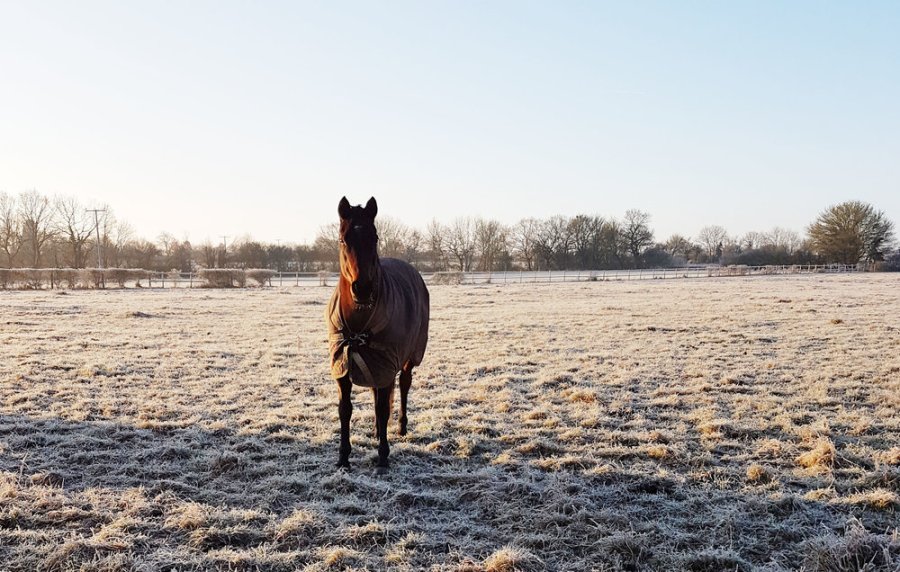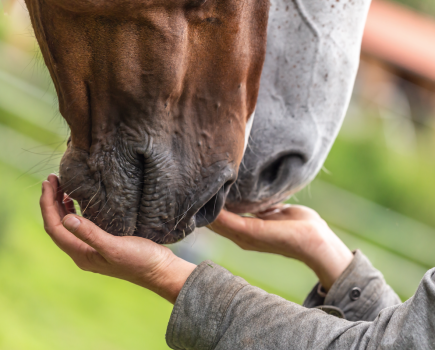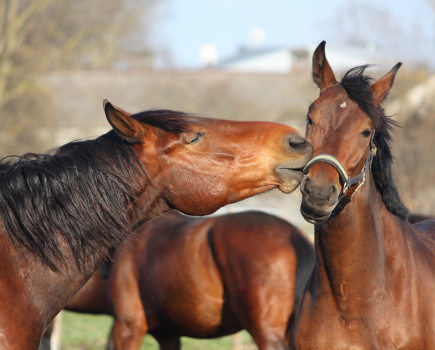We’ve had the first frost of the winter in the UK — even snow in some places — which triggers the seasonal concern among owners of whether it’s safe to turn out on, and let horses eat, frosty grass. What are the horse health risks — and can it really cause colic?
Your Horse asked veterinary surgeon Dr Mike Barton for the lowdown.
“There is no real evidence of frosty grass causing colic,” states Mike. “It is more likely that the cold weather has chilled or even frozen the water supply, and your horse becomes dehydrated. Horses don’t often love drinking cold or icy water.”
This is why dehydration in horses is not just a summer problem — it’s a real concern in winter too. It’s important to check your horse’s water buckets twice a day, and remove any ice that has formed. If they are still reluctant to drink, you can add some warm water to take the edge off the icy chill.
Frosty grass: the risks
Of course, horses living in the wild eat grass — frost and all — all year round. However in domesticated horses, frosty grass can pose a health concern to those who are at risk of illnesses such as laminitis or equine metabolic syndrome (EMS).
“Sunny days and frosty nights cause sugars to accumulate in the grass,” explains Mike. “Sugars lead to high levels of glucose and insulin the horse’s bloodstream, which increases the risk of a laminitic episode in pre-disposed horses, such as those suffering from insulin dysregulation.”
Owners concerned that their horse may be at risk should consider limiting turnout when it’s frosty and provide forage in another source, such as hay, to better control their horse’s sugar levels.
Of course, the other consideration is whether the grass is so frozen that your horse or pony is at risk of injury if they gallop around and slip over.
Weighing up the risks
Weigh up the risk according to your individual horse — they’re all different. For those who aren’t turned out everyday and so are likely to be excited the moment they hit the grass, the risk is probably higher.
If they’re living out, or going out daily and typically behave calmly, the risk is probably lower. Remember that being stabled for long periods also comes with its own risks.
Be careful when you’re riding too. Look out for slippery patches and hard, frozen ground if you’re hacking. You may find that your arena surface freezes too, making it too hard for horses to be safely ridden on.
In all situations, when it’s frosty, apply common sense and do what’s best for your individual horse.
Dr Mike Barton BVSc Cert AVP (ED) MRCVS is a veterinary surgeon at Fellowes Farm Equine Clinic in Cambridgeshire. He is an advanced practitioner and certificate holder in Equine Dentistry and has additional interest in poor performance cases. He is also a member of the GB men’s Horseball team.








